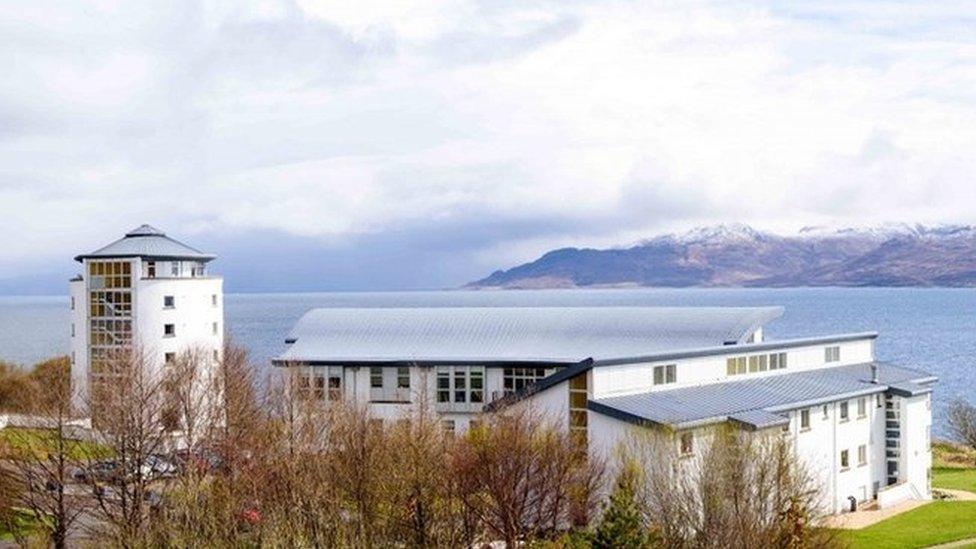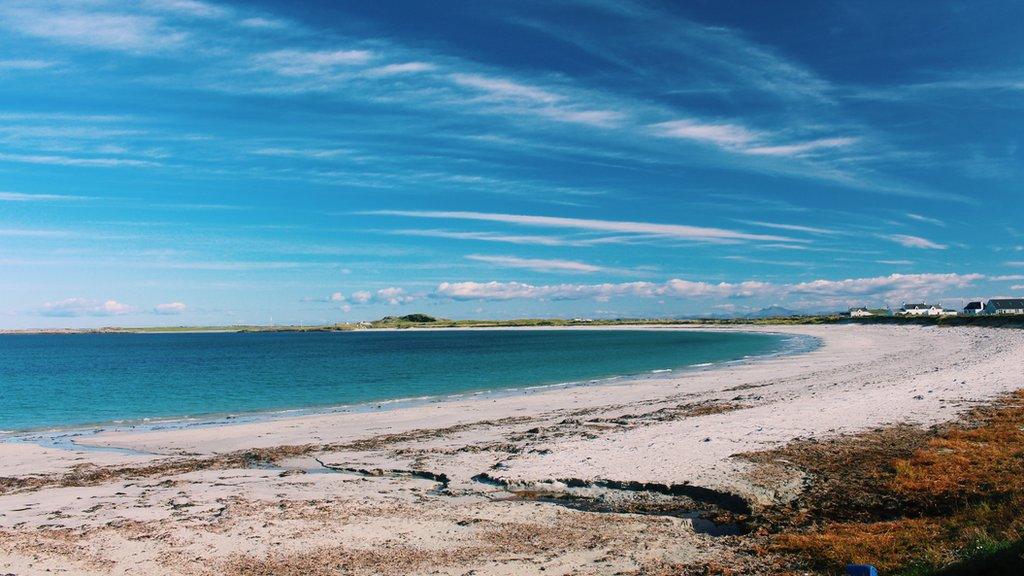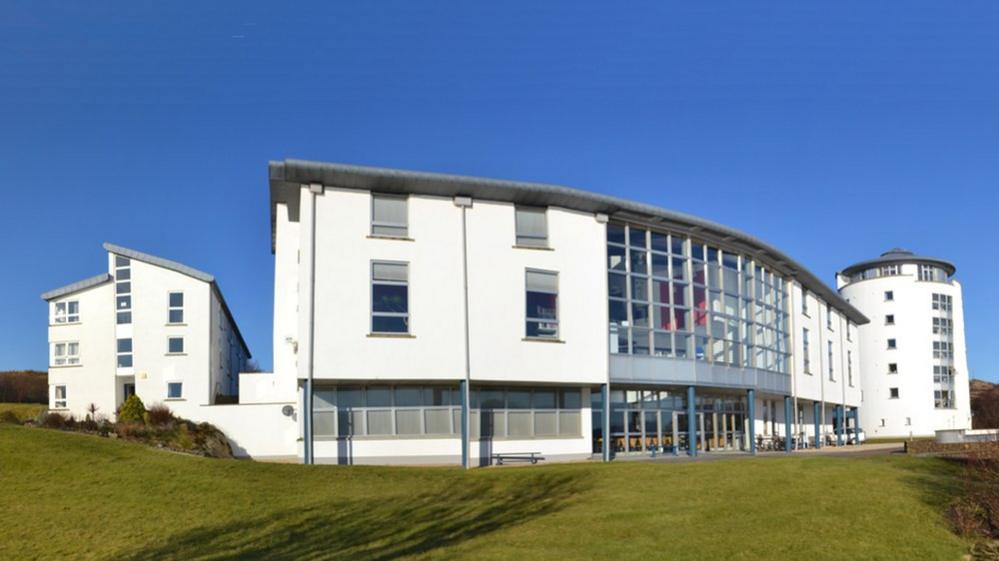Writer calls for Scotland's first Gaelic university
- Published

Prof Jim Hunter said Scotland needs a properly supported and funded Gaelic university
A leading writer and historian has called for the establishment of Scotland's first Gaelic university.
Prof Jim Hunter said Sabhal Mòr Ostaig (SMO) - the National Centre for Gaelic Language and Culture - should be given its own degree-awarding powers.
The college on Skye is part of the University of the Highlands and Islands (UHI) network.
Prof Hunter will outline his case while delivering SMO's annual lecture later on Thursday.
He will say there would be challenges to achieving university status, but will also argue it could follow the example of Glasgow's Royal Conservatoire of Scotland.
In 1993 it became the first Higher education establishment of its kind to be granted its own degree-awarding powers.
Responding to Prof Hunter's call, UHI said SMO was a valued member of its partnership and, together with the college, it would continue to support and promote Gaelic language and culture.
Education Minister Jamie Hepburn said SMO had an excellent record of achievements and added that he looked forward to considering Prof Hunter's views.
Prof Hunter is the author of 14 books about the Highlands and Islands and was the first director of UHI's Centre for History.
He said the Royal Conservatoire of Scotland was inside the Scottish higher education sector, but with its own funding allocation and its own degree-awarding powers.
Prof Hunter said: "In the sphere of Gaelic language - Gaelic culture, history, heritage in the widest sense - Sabhal Mòr Ostaig occupies a role analogous to that of the Conservatoire and surely merits the same treatment.
"Sabhal Mòr Ostaig, to speak plainly, needs to be seen, needs to be funded, as Scotland's first Gaelic University."

Sabhal Mòr Ostaig is Scotland's national centre for Gaelic
The Scottish Funding Council, which would have to support the establishment of the new university, said the college played an important role in Gaelic medium education and was currently developing a new strategic plan.
A spokesman added: "We look forward to being in further discussion with SMO, and other partners, as this develops."
SMO was founded almost 50 years ago in old farm steadings at Ostaig with an aim of helping to revitalise Gaelic.
According to the last census, 87,000 people were recorded as being able to speak, read, write and/or understand Gaelic.
The data showed an increase of 10% in the number of Gaelic speakers below the age of 15, and a 15% increase in the 16 to 29 age group.
But there have been warnings of challenges in some areas.
Language warnings
Two years ago, researchers forecast that Gaelic-speaking island communities could vanish within 10 years unless language policies were changed dramatically.
They said daily use of Gaelic was too low in its remaining native island areas to sustain it as a community language in the future.
The team also called for a shift away from institutional policies to more community-based efforts.
The study, which involved UHI, surveyed Gaelic communities in the Western Isles, Skye and Tiree.
And earlier this year, another paper suggested the teaching of Gaelic in schools was in crisis due to a shortage of new teachers.
It suggested over the next five years a minimum of 225 teachers would be needed to meet demand, but only 25 qualified for the whole of this year.
The analysis came from a former leader and a former education boss at Highland Council.
Related topics
- Published4 October 2022

- Published2 July 2020

- Published17 September 2013
